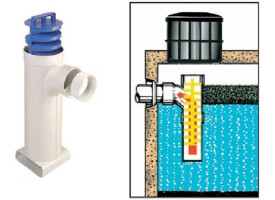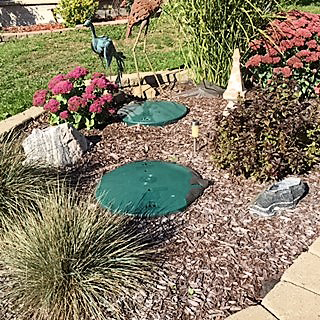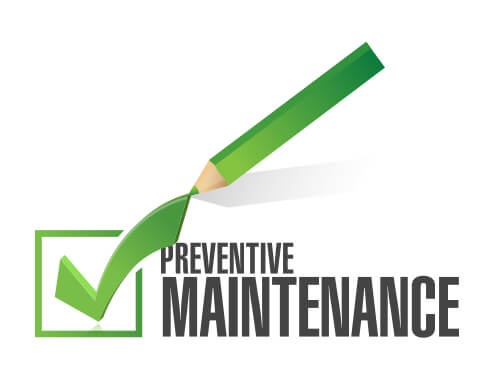Managing Your Onsite Sewage System
Septic Tank Pump Outs and Cleaning
There are many different types of on-site sewage systems. The most common is the gravity-flow system. Understanding and monitoring the components of your system is essential to prevent and identify problems should they arise.
Your Onsite wastewater disposal system consists of a septic tank, the field bed and the soil. Your septic system is designed to work by allowing the tank to start the cleaning process by separating out solids, allowing liquids (waste water), otherwise know as “effluent” or “grey water” to be further cleaned by natural occurring bacteria as it flows into the field bed, then into to soil.
Even with a healthy microbial ecosystem breaking down the effluent (waste water) and a well functioning septic system with a good drain field your septic tank will produce scum and sludge layers in the tank. Over time without service this will cause system failure.
Your tank needs to be pumped out regularly, every 3 years is recommended for normal household use.
It is optimal to have your septic system checked every year. This includes:
- evaluating the sludge and scum levels,
- visually checking the system’s pipes and mechanisms,
- clean effluent filters and
- inspect the drain field to make sure it’s percolating the effluent properly

See FAQ section for more details on the components of your onsite sewage system, pump out frequency, trouble shooting, helpful information, DO’s and Don’ts’ …
- A brief overview of a septic system
- What is a septic tank?
- What is a Field bed?
- What about the Soil?
- What is a Septic Tank inspection?
- How does a septic tank work?
- How to keep the septic system working? DO’s & DON’TS
- Are there any signs that the system needs service?
- How often should I have my septic tank pumped out?
- What is a Septic Tank Effluent Filter?
- What is a Septic Tank Riser & Lid?
- How to prepare for a septic tank pump out?
Installation of Septic Tank Effluent Filters
Most septic system that have been installed since 2006 have required the use of an effluent filter.
An effluent filter helps improve the filtration process, reducing solid waste from reaching your field bed. We are likely able to retrofit your existing tank with a sludge and scum filter that will suit the unique needs of your home system.
These filters need to serviced annually. Properly installed and regularly serviced effluent filters will help extend the life of your costly field bed.
Installation: What to Expect – Installing an effluent filter doesn’t usually take long and is not overly costly. It is made out of PVC and is installed the outgoing side of the tank. The existing baffle is removed and the effluent filter is installed. See illustration below:

Installation of Septic Tank Risers & Lids
Whether you have a plastic or concrete septic tank it will need to be pumped at least every 3-5 years. Yearly visual inspections and effluent filter replacement are beneficial as well in extending the longevity of your septic system.
Your tank is likely buried several feet under ground, which helps to eliminate the very real possibility of odor leakage. However, there are some drawbacks – this means labour intensive digging, searching for the lids (access points) and possibly struggling with heavy concrete lids every time your tank needs cleaning, servicing and/or maintenance.
A septic riser enables a tank to be buried a few feet beneath the earth, and providing an extension that brings access to the septic tank to ground level – allowing easy access when it becomes necessary to pump out the tank or for a cleaning or inspection. You know exactly where the septic tank and its lid are located. In the long run it easier and more cost effective to have a riser installed with a lid.
Contact us today for more information about the materials, cost, and maintenance of septic risers.

The “Prevention Service Plan”
Taking the remembering of “when was my last pump out?” and minimizing unpleasant surprises!
With this plan in place we do the remembering for you. We tailor the plan to your specific situation. We will let you know when and what service is required via phone, email, text etc.
When we pump your septic tank, we will take note of several key indicators of your septic system such as size, load, location, age and its overall condition.
With this information, we will make some recommendations regarding a preventative maintenance schedule for your particular septic system and usage estimate.

Our program involves:
- Servicing your septic tank effluent filter once a year
- evaluating levels of sludge and determine the need for cleaning
- septic tank inspection
- determining a suitable clean out/pumping schedule depending on the size, age and usage of your tank
- maintaining a record of tank condition, pump outs and effluent filter changes
- providing email or phone reminders of recommended services
- notifying you by email of phone of the inspections findings and inform you of your next recommend pump out
- advise and recommend necessary repairs or upgrades
- schedule pump outs and cleaning @ your convenience
Failing to Properly Maintain Your Septic System be Can be Costly
If you’re like homeowners, you don’t spend a great deal of time thinking about your septic system. As long as it’s working, why would you think it needs attention? With minimal preventative maintenance, you can save yourself a lot of headaches and unnecessary costs in the future.
What are the potential issues resulting from a failed system?
- Contamination of groundwater- When your septic system fails, the untreated contaminants can reach groundwater creating a number of health related issues. Bacteria and viruses from human waste contaminants can cause a serious outbreak of diseases such as hepatitis or dysentery.
- Nitrates and phosphates contained from waste can cause algae blooms in local lakes and streams causing harm to aquatic life
- Failed septic systems can be downright nasty. Waste odors and soggy lawns are extremely unpleasant in addition to potential health hazards
- the replacement of a septic system is EXPENSIVE. Just like other types of normal maintenance in your home, regular maintenance of your septic system can be the difference between a minimal yearly expenditure and replacement costs in the thousands
Other Services
There is a huge variety of septic system additives available. We will review the condition of your septic system and usage patterns and advise you of your need for:
- specific septic system additives
- advanced bacterial additives
- routine or annual inspections
- consultation and referrals for new septic systems
- suggestions regarding improvements and repairs to existing septic systems


